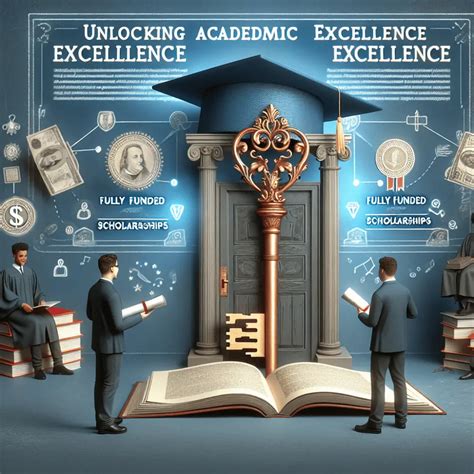In the competitive and ever-evolving landscape of education, identifying and nurturing the qualities that define a good student has become paramount. Beyond academic prowess, there exists a complex tapestry of attributes that contribute to a student’s success. This comprehensive guide delves into the defining characteristics and essential practices that set exceptional students apart.

Academic Rigor and Intellectual Curiosity
- High Academic Standards: Aim for academic excellence by setting high standards and maintaining a strong work ethic.
- Curiosity and Exploration: Engage in extracurricular activities, research projects, and independent reading to cultivate intellectual interests.
- Critical Thinking and Problem-Solving: Develop critical thinking skills by analyzing information, evaluating perspectives, and solving problems independently.
Time Management and Organization
- Time Management: Effectively allocate time for studying, assignments, extracurricular activities, and personal well-being.
- Organization and Preparation: Organize study materials, schedule assignments, and plan ahead to avoid procrastination and stress.
- Prioritization and Focus: Identify high-priority tasks and focus on completing them efficiently.
Study Skills and Learning Strategies
- Active Reading: Engage in active reading strategies such as highlighting, note-taking, and summarizing to enhance comprehension.
- Effective Note-Taking: Develop effective note-taking techniques to capture key concepts and facilitate recall.
- Collaboration and Discussion: Participate in study groups, discussions, and peer tutoring to enhance learning and reinforce understanding.
Motivation and Drive
- Intrinsic Motivation: Cultivate intrinsic motivation by setting personal learning goals and fostering a love for the subject matter.
- Perseverance and Resilience: Develop perseverance by facing challenges, overcoming obstacles, and embracing failure as an opportunity for growth.
- Goal-Setting and Self-Reflection: Set clear academic goals and regularly reflect on progress to identify areas for improvement.
Communication and Interpersonal Skills
- Effective Written Communication: Develop strong writing skills for essays, reports, and presentations.
- Verbal Communication and Presentation: Practice clear and concise verbal communication and presentation skills.
- Collaboration and Teamwork: Work effectively in groups, contribute ideas, and support peers.
Emotional Intelligence and Well-being
- Self-Awareness and Self-Regulation: Understand and manage emotions, stay calm under pressure, and stay focused in challenging situations.
- Empathy and Social Awareness: Cultivate empathy and understand diverse perspectives to foster positive relationships.
- Self-Care and Well-being: Prioritize physical and mental health through regular exercise, healthy eating, and stress management techniques.
Tips and Tricks for Success
- Use technology to enhance learning, such as educational apps and online resources.
- Seek feedback from teachers and peers to identify areas for improvement.
- Create a dedicated study space free from distractions.
- Take breaks and engage in relaxation techniques to maintain focus and avoid burnout.
- Reward yourself for accomplishments to foster motivation.
Common Mistakes to Avoid
- Procrastination: Start assignments early to avoid stress and ensure high-quality work.
- Lack of Focus: Minimize distractions during study sessions and maintain focus on the task at hand.
- Ignoring Feedback: Seek and welcome feedback to identify weaknesses and improve performance.
- Neglecting Study Skills: Develop and utilize effective study strategies to maximize learning and retention.
- Lack of Self-Discipline: Stay accountable and maintain a consistent schedule and work ethic.
Frequently Asked Questions
Q: What is the most important trait of a good student?
A: A combination of academic rigor, time management, effective study skills, motivation, and emotional intelligence is essential for academic success.
Q: How can I improve my time management skills?
A: Use a planner, prioritize tasks, and break down large projects into smaller, manageable chunks.
Q: What are some active reading strategies?
A: Highlighting, note-taking, summarizing, and asking questions while reading.
Q: How can I cultivate intrinsic motivation?
A: Set personal learning goals, explore your interests, and connect learning to real-life experiences.
Q: What is the role of emotional intelligence in student success?
A: Emotional intelligence allows students to manage stress, stay focused, and build positive relationships with peers and teachers.
Q: How can I seek feedback to improve my performance?
A: Regularly ask teachers, peers, and mentors for constructive criticism and suggestions.
Q: What are some common mistakes to avoid as a student?
A: Procrastination, lack of focus, ignoring feedback, neglecting study skills, and lack of self-discipline are common pitfalls that can hinder academic success.
The qualities outlined in this article paint a clear picture of what constitutes a good student. By embodying these attributes, students can unlock their academic potential, thrive in diverse learning environments, and lay the foundation for lifelong success. Remember, academic excellence is not solely determined by natural ability but is cultivated through a combination of hard work, effective strategies, and a positive mindset. Embrace the journey, embrace the challenges, and strive to become the best student you can be.
